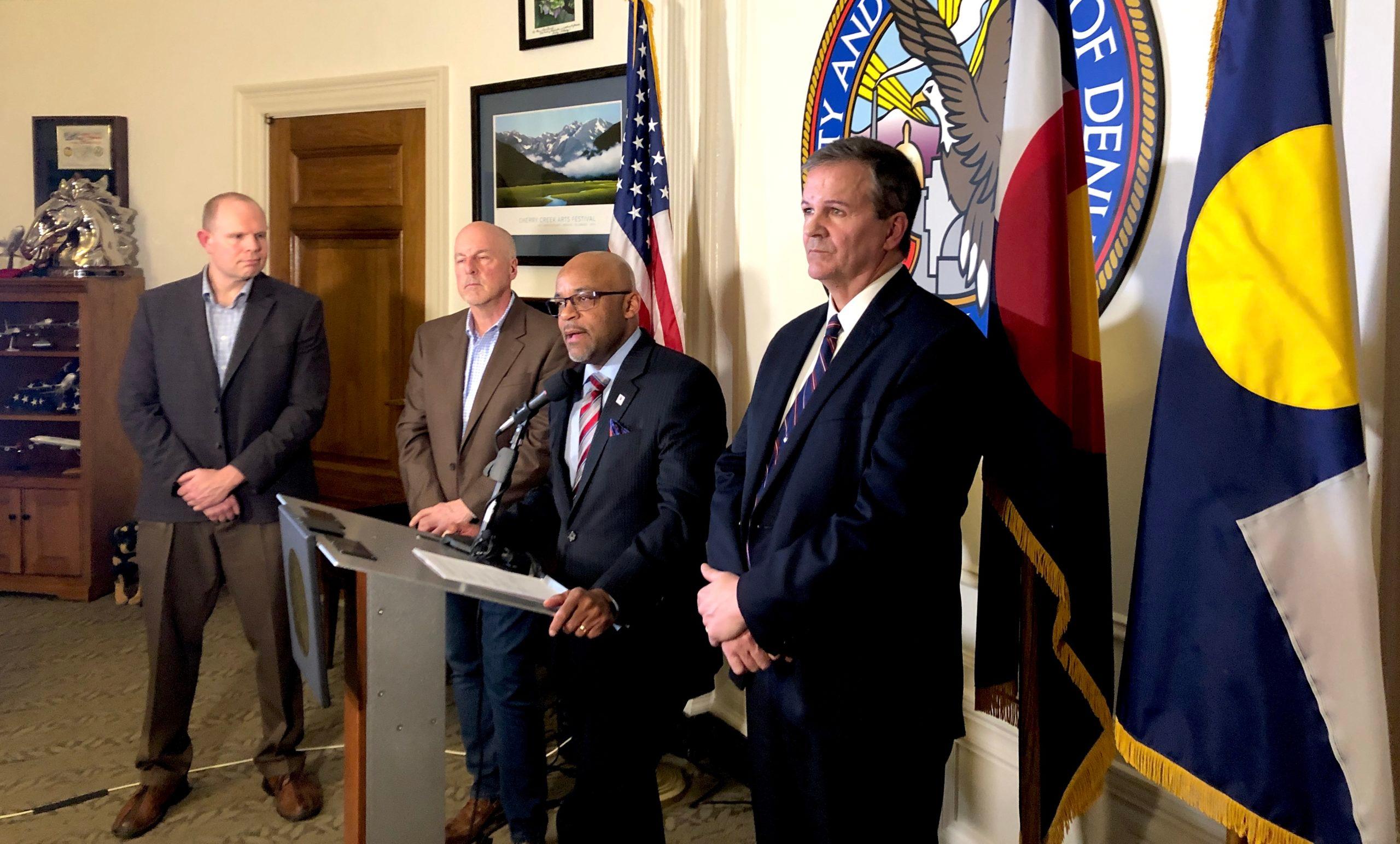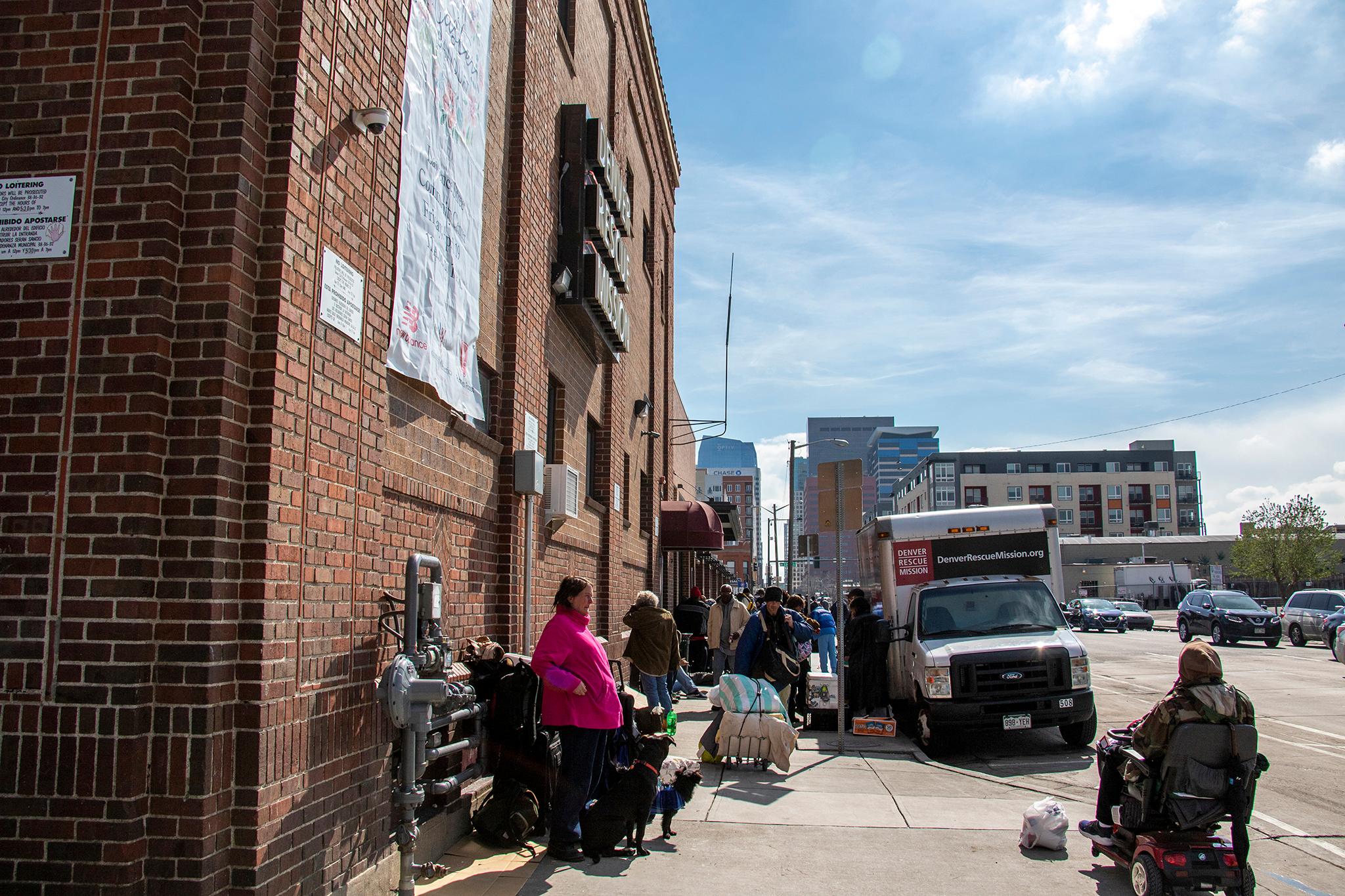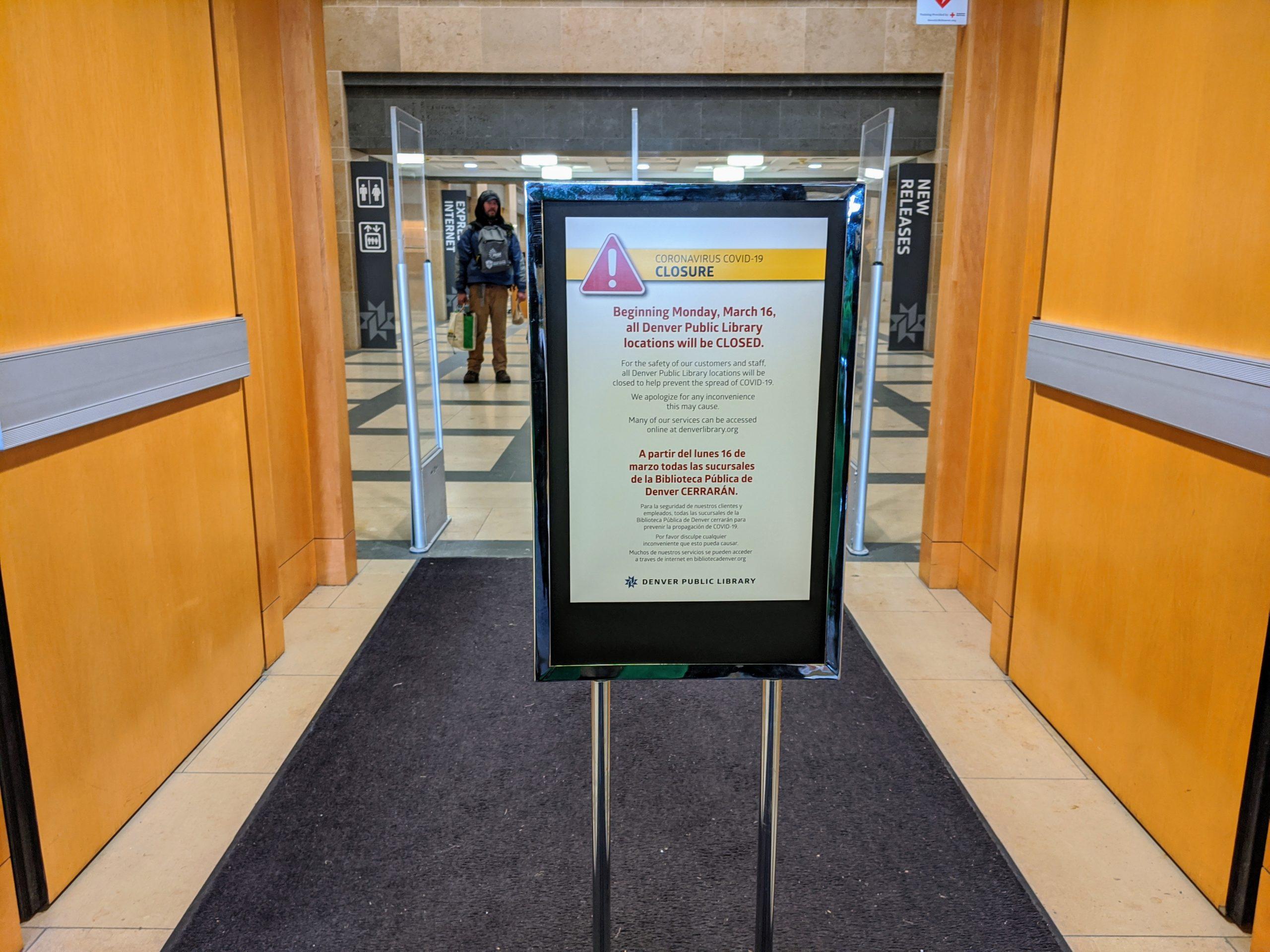Updates with calls for support for service providers and other details from Monday's news conference.
Denver city officials have had few details to offer on preparations to care for people experiencing homelessness who contract COVID-19, even as public health concerns led to the closure of libraries and rec centers that offer some of the few places those living on the streets can wash their hands -- a key preventative measure against the new coronavirus.
Mayor Michael Hancock announced at a news conference on Friday the indefinite closure starting Monday of all the city's libraries and recreation centers, which can be crowded. Public health experts are recommending "social distancing," meaning staying away from large gatherings and keeping about six feet away from others when possible.
Stevie Pinkerton was sitting on a bench with his backpack just inside the Central branch when he heard the guard at the entrance telling visitors about the impending closure.
"That'll be a huge inconvenience," said Pinkerton, who has been experiencing homelessness for three years. "I imagine peeing in a lot of alleys."
Pinkerton said he has relied on bathrooms at the library -- "the men's restroom is always really busy" -- to relieve himself and wash his hands, and rec centers for showering. He also could recite the usual locations of the city's two mobile restrooms, convenience stores where he could use a bathroom if he bought something, and one shop where he said a sympathetic manager allowed people experiencing homelessness to use the bathrooms without asking them to make a purchase.
Parks & Rec Director Happy Haynes said Friday that a city team was working on alternatives for people such as Pinkerton, but "we don't have anything to report yet."
Outreach workers have been distributing hand sanitizer and information about hand-washing stations and bathrooms, including facilities at shelters and public toilets. Pinkerton said a day or two ago he was handed a bag with a flyer in Spanish, which he doesn't speak, two packets of vitamin C and a small bottle of hand sanitizer.

Elsewhere, municipalities have provided public hand-washing stations. Other communities have taken bigger steps as well. San Francisco announced last week that it had leased RVs where people experiencing homelessness who are ill can be isolated. King County in Washington bought a motel to quarantine potential coronavirus cases among people experiencing homelessness. Public health experts recommend people with COVID-19, the disease caused by the new coronarvirus, isolate themselves at home, advice that is impossible to follow when you don't have a home.
Britta Fisher, who heads Denver's housing department, said the city was working on a plan to respond when people experiencing homelessness are diagnosed with COVID-19.
Fisher, speaking at the news conference at which the mayor announced the closure of libraries and other public health measures, said the city was working at securing rooms, possibly in hotels, for people experiencing homelessness who test positive for COVID-19. She said the city has hotel vouchers that can be distributed to people experiencing homelessness. The city's homeless shelters would not be expected to provide space for isolation or quarantine, she said.
At another news conference on Monday, Fisher and Hancock said vacant apartment buildings and entire hotels were being looked at as options.
"We hope to have more information on that in coming days," Hancock said Monday.
Cathy Alderman, vice president of communications and public policy for the Colorado Coalition for the Homeless, said caring for people experiencing homelessness during the coronavirus was likely to be expensive.
"But that really shouldn't be our concern right now. We've got to keep people safe," said Alderman, whose nonprofit offers housing, health and other services. "Our biggest fear is that when this begins to spread, a lot of the people that we're going to be serving are going to be pretty hard hit."
At Monday's news conference, officials asked for volunteers and donors to support homelessness service providers. Fisher pointed to a web site set up last May to which members of the public can donate to help Denver fund housing vouchers and improvements at shelters for people who are experiencing homelessness.
In addition to cash, cleaning supplies and other items were needed, officials said, saying drop-off donation sites had been set up at two rec centers, La Alma Lincoln Park at 1325 W 11th Ave. and Martin Luther King, Jr. at 3880 Newport St. in Northeast Park Hill, from 1 p.m. to 4 p.m. Monday to Friday.
Officials said that Denverites who are are young, healthy, and showing none of coronavirus's flu-like signs or symptoms can volunteer to help to prepare meals, distribute supplies and clean at shelters. United Way set up a web site where volunteers can register.
People experiencing homelessness are not more likely to contract the coronavirus. But they are at higher risk of falling ill because their immune systems are likely to have been weakened by poor diets and being exposed to the elements, and some may have underlying medical problems.
Many shelters are open only overnight. In a statement Friday, the advocacy group Denver Homeless Out Loud called for 24-hour shelters, as well as hand-washing stations, housing for those infected with coronavirus and other action by the city to "to protect all those without housing."
"Many of these services are necessary to maintain public health and should continue to be offered until every person has a stable home," the group added.
St. Francis Executive Director Tom Luehrs, whose nonprofit's services include housing, health care and a day center, said he got an email about coronavirus from the city Friday morning asking what his needs were. He'd just run out of hand sanitizer and was awaiting a delivery from a private supplier who could not tell him when it would arrive.
Luehrs said that while he appreciated the city's attempts to gather information from service providers, "at this point, I'm not hearing the next step."
"The question, maybe, that we haven't gotten to is, 'What if there is an outbreak? Where would be available to send people?" Luehrs said.

Josh Geppelt, vice president for programs for the Denver Rescue Mission, said Luehrs's question was part of a conversation with city officials that started late and has progressed slowly. Other questions Geppelt has include what would happen if so many staff fell ill that the Denver Rescue Mission would have to cut back services at the three overnight shelters it operates. The shelters have a total capacity of more than 900 beds. Already, Geppelt said, some volunteers with health concerns have stopped coming, adding to pressure on his staff.
Monday, Geppelt said the Denver Rescue Mission was consolidating all its beds into two facilities, as that would allow the nonprofit to deploy staff to other tasks.
Geppelt said that so far no staff members have fallen ill. He said that throughout the city, he knows of a dozen people experiencing homelessness who have been tested, but no positive results have been announced.
Geppelt said he was hopeful of more answers and action now that the mayor has declared an emergency. The declaration came Thursday, and since then city officials have been updating homelessness service providers daily, Geppelt said.
"I feel more confident in what the coordinated response is looking like," Geppelt said after a conference call Sunday with fellow service providers and city officials. "But there are still a lot of unanswered questions, just because they aren't easy questions to answer."
He said the city was starting to identify and secure places to isolate people experiencing homelessness and continuing to try to identify more.
The city showed during the bomb cyclone last March that it can respond in a crisis, Geppelt said. During that storm, he said, the city met needs "that we didn't even know we had."
Alderman, of the Colorado Coalition for the Homeless, said coronavirus has exposed gaps in support for people experiencing homelessness.
"At some point, once we get all these systems up and running" to address the disease outbreak, Alderman said, "we'll realize we can respond to the crisis of homelessness."













